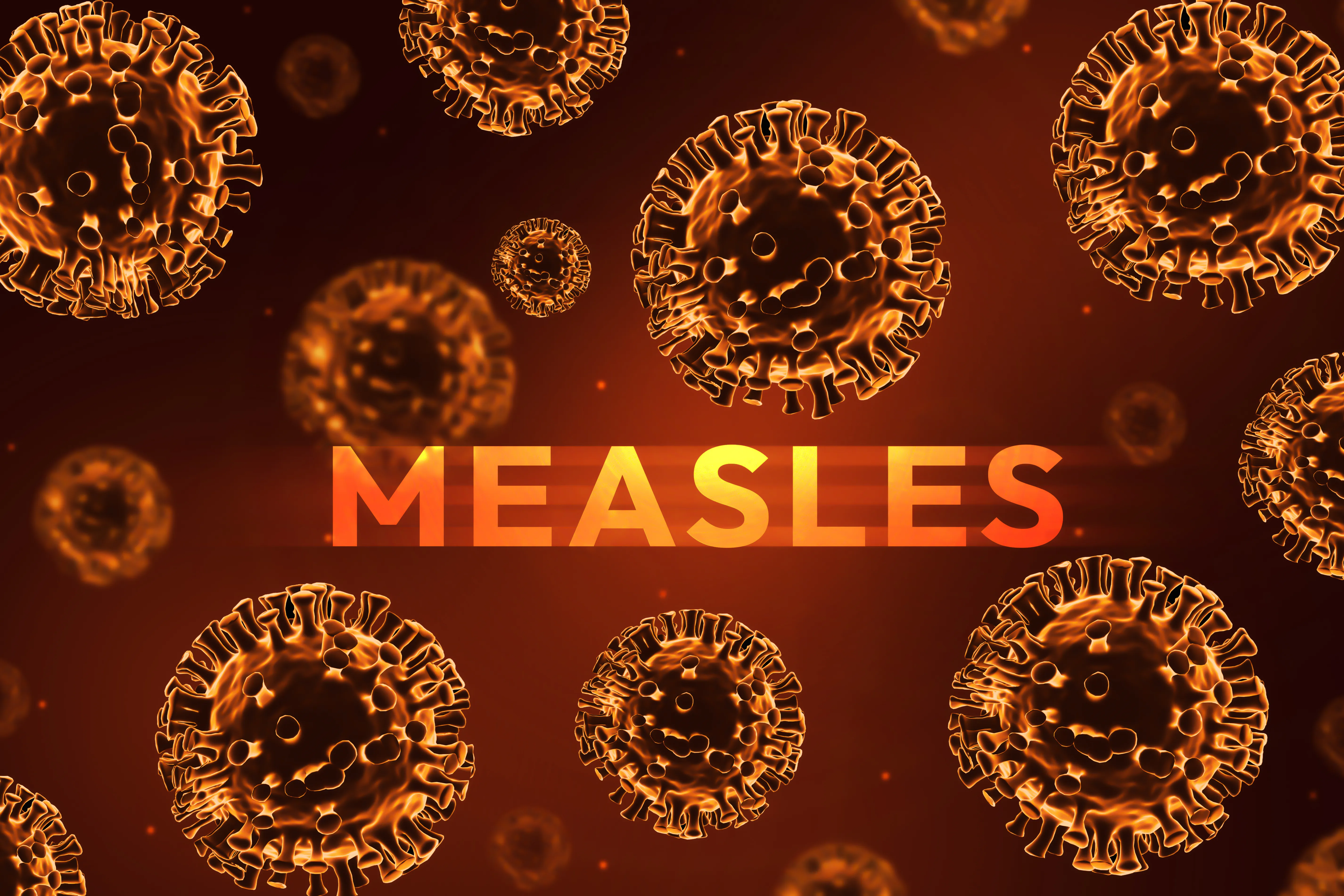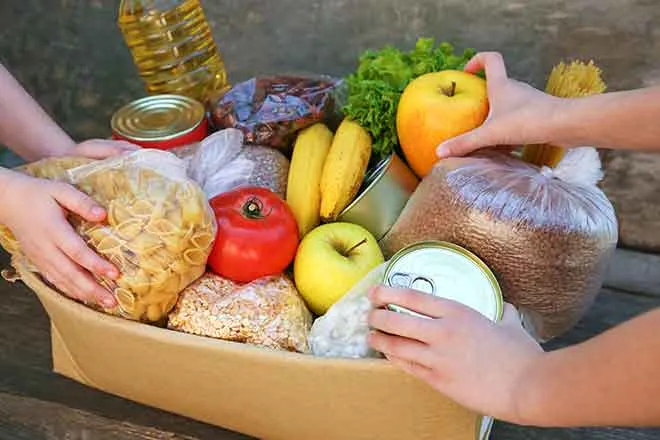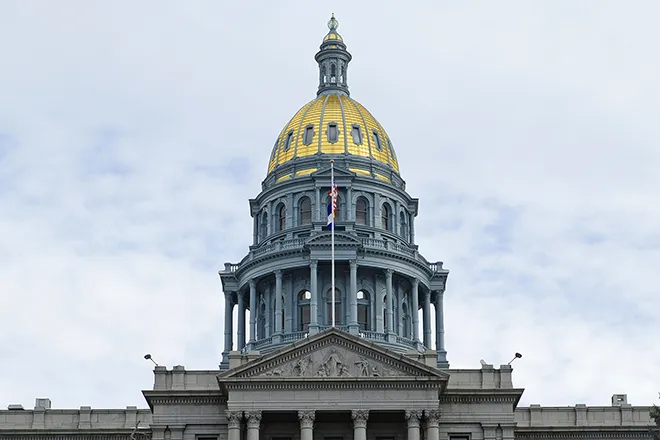
Daily Audio Newscast Afternoon Update - June 23, 2025
© INDU BACHKHETI - iStock-1336427297
News from around the nation.
Tankers U-turn, zig-zag, pause around Strait of Hormuz; Labor groups call for major changes to NAFTA replacement; Proposed federal SNAP cuts would impact NYS food banks; Out Nebraska rebrands, increases outreach during Pride Month.
Transcript
The Public News Service Monday afternoon update, I'm Mike Clifford.
At least two super tankers made U-turns near the Strait of Hormuz following U.S. military strikes on Iran.
Ship tracking data shows as more than a week of violence in the region prompts vessels to speed, pause or alter their journeys.
That from Reuters.
They report Washington's decision to join Israel's attacks on Iran has stoked fears that Iran could retaliate by closing the strait between Iran and Oman, through which about 20 percent of global oil and gas demand flows.
Reuters notes that has spurred forecasts of oil surging to $100 a barrel.
Both Brent and West Texas Intermediate Crude hit fresh five-month highs on Monday.
Next, a coalition of labor and environmental groups are calling for major changes to the U.S.-Mexico-Canada agreement, which dictates trade between the three countries.
The replacement for the North American Free Trade Agreement was signed in 2020 by President Donald Trump, who said it would bring jobs pouring back into the U.S. and be a great victory for our farmers.
But Arthur Stimolis with the Trade Justice Education Fund says the agreement is full of handouts to corporations that continue to offshore jobs to Mexico, taking advantage of weak labor and pollution standards.
The Trump administration needs to acknowledge the USMCA has not worked out in the ways that the president promised it would and make substantial changes to the agreement that benefit working people and the planet.
Backers of the USMCA say it fueled record growth in trade and investment across North America since its creation.
I'm Katherine Carley.
And New York food banks and pantries could face major impacts from the Congressional Budget Reconciliation Bill.
The bill calls for cutting the Supplemental Nutrition Assistance Program, or SNAP, by $300 billion over the next decade.
It would mean 300,000 New York households could lose some or all of their benefits, with an estimated average loss of $220 per month.
Paul Pachter with Long Island Care says this comes as food pantries are already making changes to meet the growing need.
It's been a challenge to the pantries.
We haven't seen any make a decision to close.
What we've seen is a reduction in the hours and a change in the model by which they're just providing emergency boxes of food for people in need.
He notes some food pantries cut their hours because they're running out of food.
I'm Edwin J. Vieira.
The non-profit Out Nebraska is marking Pride Month with a series of parades, marches and other events across the state in June.
Out Nebraska Communications Manager Owen Rush says Pride Month is a good opportunity not only to celebrate LGBTQ issues, but connect community members with useful resources.
We're definitely connecting people with resources.
We worked on a couple of different magazines of like how to change your name, you know, information about pronouns, providing the community with more information about the LGBT community and also resources in Nebraska, letting people know what they can do.
Out Nebraska helps educate LGBTQ people about health care and legal needs and lists supportive members of the business community.
This is public news service.
Next to Idaho where an increase in spring enrollment for higher education is pushing levels closer to pre-pandemic levels.
That's according to a new report.
It increased 3.2 percent compared with spring 2024.
That brings enrollments for all institutions close to numbers in 2020.
However, Idaho saw the largest decline in the nation in enrollment between spring 2024 and 2025, a drop of 6.2 percent.
He and Kim with the National Student Clearinghouse Research Center, which conducted the study, says the decline is actually due to a change in how students are classified.
An institution who used to include dual enrollment in their enrollment count, they're no longer reporting dual enrollment.
So as a result, you sort of see a sudden decline there for Idaho.
Enrollment numbers in Idaho were above pandemic levels in 2024.
While public two-year and private four-year institutions saw a drop in students this spring, public four-year institutions saw an increase in 2025.
I'm Eric Tegethoff reporting.
We head next to Kentucky where the newly established Medicaid Oversight and Advisory Board convenes for its first meeting this week.
Members established the board, which includes citizens, during the 2025 legislative session.
Experts say educating the public on Medicaid is critical amid ongoing threats to cut federal funding for the program.
Dr. Sheila Schuster, licensed psychologist and executive director of the Advocacy Action Network says Medicaid is the largest source of health care in Kentucky, but few know how it works.
To really get into the nitty gritty beyond just the money, but what are the programs, how are they run, who are the providers, do we have enough providers, how do we keep our health care facilities, again the hospitals, the nursing homes.
The meeting is scheduled for Wednesday.
The board will dig deep into state Medicaid spending, recommend policies, and stay on top of how federal decisions could impact Kentucky's Medicaid access.
Brett Pivito reporting.
Finally, as Michigan aims to support two million electric vehicles by 2030, the new equitable EV action plan framework could help local leaders with the transition.
The framework was developed by UC Berkeley's Center for Law, Energy, and the Environment and their partners, including non-profit Michigan Clean Cities.
The plan outlines steps local governments can take to build EV infrastructure and improve accessibility, particularly in underserved communities.
In a recent Clean Fuels Michigan webinar, Jeffrey Huang of Michigan Clean Cities shared insights about the plan.
The focus of this framework is ensuring that community voice and impact is prioritized with these plans.
To actually receive public input on where EV chargers, EVSC should be placed within the city.
So actually going out to residents and just asking.
And how they should be prioritized.
Still, many EV critics contend that affordability is a big issue for everyday families, even with tax credits.
Crystal Blair reporting.
This is Mike Clifford.
Thank you for starting your week with Public News Service.
Member and listener supported.
Find our trust indicators at publicnewsservice.org.

















